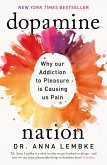Everyone knows what is feels like to be in pain. Scraped knees, toothaches, migraines, giving birth, cancer, heart attacks, and heartaches: pain permeates our entire lives. We also witness other people - loved ones - suffering, and we 'feel with' them. It is easy to assume this is the end of the story: 'pain-is-pain-is-pain', and that is all there is to say. But it is not. In fact, the way in which people respond to what they describe as 'painful' has changed considerably over time. In the eighteenth and nineteenth centuries, for example, people believed that pain served a specific (and positive) function - it was a message from God or Nature; it would perfect the spirit. 'Suffer in this life and you wouldn't suffer in the next one'. Submission to pain was required. Nothing could be more removed from twentieth and twenty-first century understandings, where pain is regarded as an unremitting evil to be 'fought'. Focusing on the English-speaking world, this book tells the story of pain since the eighteenth century, addressing fundamental questions about the experience and nature of suffering over the last three centuries. How have those in pain interpreted their suffering - and how have these interpretations changed over time? How have people learnt to conduct themselves when suffering? How do friends and family react? And what about medical professionals: should they immerse themselves in the suffering person or is the best response a kind of professional detachment? As Joanna Bourke shows in this fascinating investigation, people have come up with many different answers to these questions over time. And a history of pain can tell us a great deal about how we might respond to our own suffering in the present - and, just as importantly, to the suffering of those around us.
Dieser Download kann aus rechtlichen Gründen nur mit Rechnungsadresse in A, B, BG, CY, CZ, D, DK, EW, E, FIN, F, GR, HR, H, IRL, I, LT, L, LR, M, NL, PL, P, R, S, SLO, SK ausgeliefert werden.









